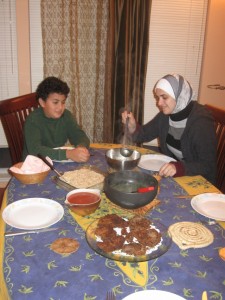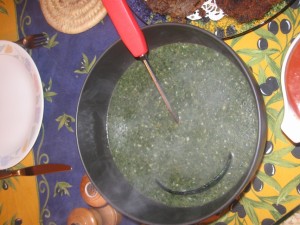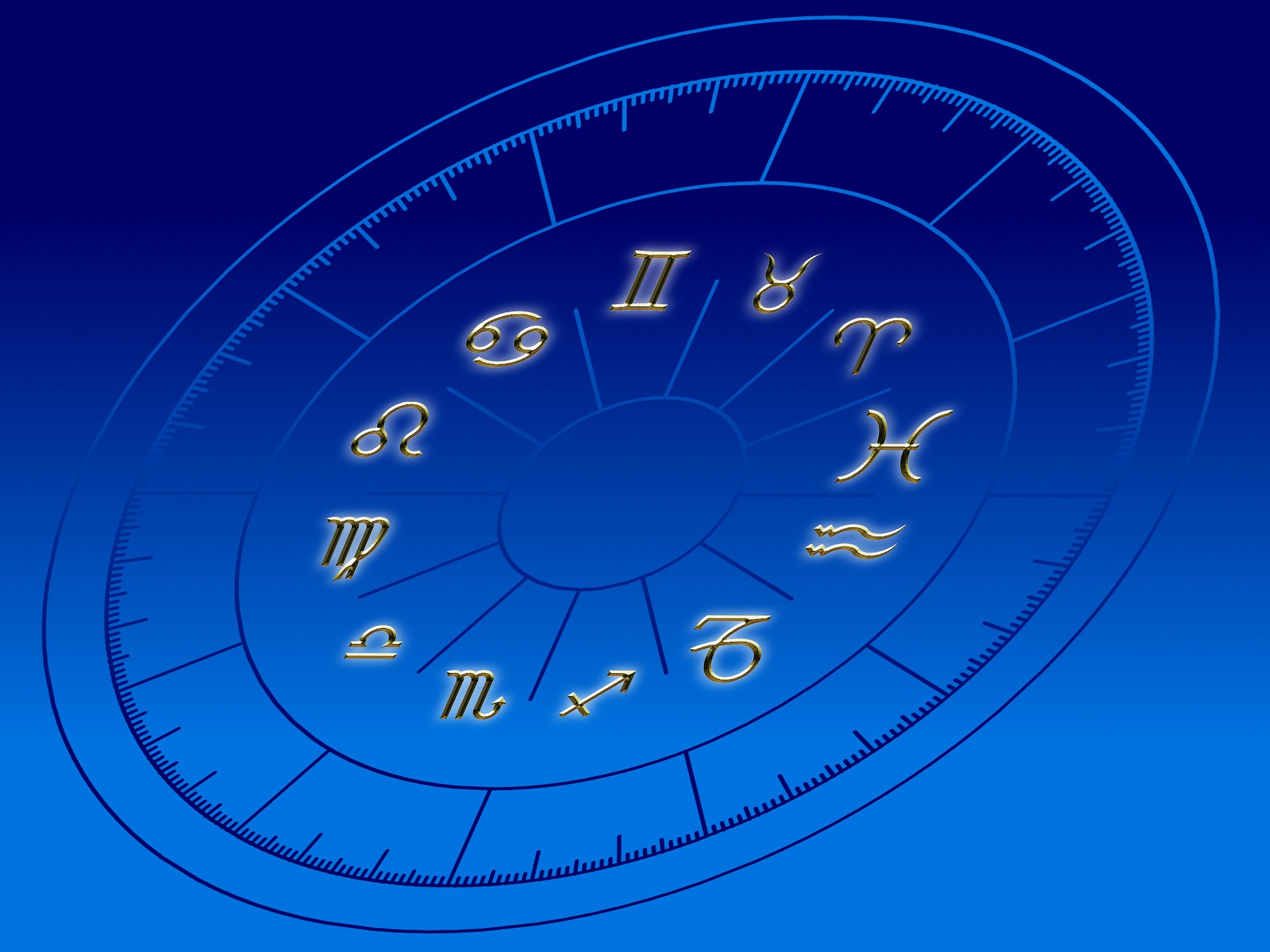Muslim students mourn and celebrate in Muharram
In a nondescript house, in a nondescript neighborhood, in a nondescript part of Davis, about 40 people are gathered to mourn. A man sits in a chair in the broad entranceway of the private home, delivering his sermon passionately through a small loudspeaker set up on the chair next to him. Men sit solemnly along the length of the entranceway’s walls and in the front living room. The women are on the couches at the back of the house, sophomore Thamineh Tabatabaeifar among them. Everyone is dressed in funereal greys and blacks, and tissues are passed as some people begin to cry quietly.
They are Shiite Muslims, and they will mourn Hussein, grandson of the Prophet Muhammad, for nine more nights, until the anniversary of his death on the 10th day of Muharram, the first month in the Islamic calendar.

Across town, Omar Abdel-Ghaffar, a Sunni sophomore, and his family are also observing the first day of Muharram. But the mood is much happier. When the sun goes down, they tell each other “Happy New Year,” and sit down to eat a large meal, with rice, friend chicken and molokhia, a green soup made especially for the New Year.
For Sunnis, Muharram is a month with a few minor holidays, with the largest being the Islamic New Year on the first, and the celebration on the 10th of Moses being delivered from the Pharaoh’s army. Fasting on the 10th is optional.
For Shi’a, however, the 10th, also called Ashura, and the nine days leading up to it, is a major holiday.
“My family goes to our mosque every single day for [the] 10 days [of mourning Hussein],” said Laila Rizvi, a Shiite junior. “The 10th day, I basically miss school. [I] go to the mosque during the day and again at night.”
Rizvi and her family continue the observation at their own home afterwards, ending at Rizvi’s aunt’s house.
“It’s all over by two [in the morning],” Rizvi said.
“Hussein is our church leader, for Shi’a. He also started teaching people Islam, and answering people’s questions,” Mahin Amuzegar, a Shi’a youth group leader, explained. “The grandson of the prophet Muhammad was the best source of the questions about God.”
According to Shiite tradition, Yazid, the caliph at the time, felt threatened by Hussein, and he and his army marched to Hussein’s encampment by a river. For 10 days, they refused to let Hussein and his family drink from the river.
“At the beginning of the 10th day, they started killing them all,” Amuzegar said. “Hussein, they killed, and some of the women and children.”
“[Muslims] learned how to stand up for their rights and their belief,” Amuzegar added. “And this is how Imam Hussein taught them. Stand up, even if you lose your family, your friends.”

“Hussein means a super hero to me for what he stand[s] for, and also a role model,” said Tabatabaeifar. “[The way he stood] for his belief, for the way God shows us.”
“He wanted Muslims to be better,” Tabatabaeifar added.
“Hussein was a person who did not fight. He was the perfect young man. He was clean, he was princely… That’s how he’s always depicted. He never let his immoral instincts take over,” Abdel-Ghaffar said. “His existence meant that, whatever the Sunnis came up with, there would be a better version.”
Abdel-Ghaffar noted his views were not that of most other Sunnis. He explains it by the fact that Egypt, though essentially Sunni, was conquered by the Shiite Fatimid empire that made it an obligation for the Egyptian people to observe the martyrdom of Hussein.
“Most Sunnis don’t celebrate Muharram,” he added.
“It’s not one of the big holidays,” confirmed Radia Abdelnur, a Sunni senior.
“Muharram marks the beginning of the Shi’a celebrations and festivals, but we don’t because we’re not Shi’a,” said Nafisa Eltahir, a Sunni sophomore whose family is from Sudan. “You know how different groups of Christianity celebrate different things? It’s kind of like that.”
But some Sunnis do observe different smaller holidays in Muharram. Hagr Balla, a junior, is another Sudanese Sunni, who occasionally fasts on Ashurah.
“On the 10th day [of Muharram], Moses had salvation. That was the day his people were saved from the pharaoh, I think it was Ramses,” Balla said.
“It’s not like Ramadan where you have to fast,” Abdel-Ghaffar said. “So if it’s on a weekday I won’t fast.”
Some Sunnis celebrate Muharram, not to honor Moses, but to honor the Prophet Muhammad, such as Abdelnur, who remembers the time the Prophet Muhammad escaped to Mecca.
“He turns the city over time, into a better situation than before. He improves relations between everyone in the community. He helps build schools, he helps with [getting rid of] poverty,” Abdelnur said.
Abdelnur also feels she learns a lesson from the events that happened during Muharram.
“If you’re going to a place, it’s always good to think how you can improve the situation,” Abdelnur said.



